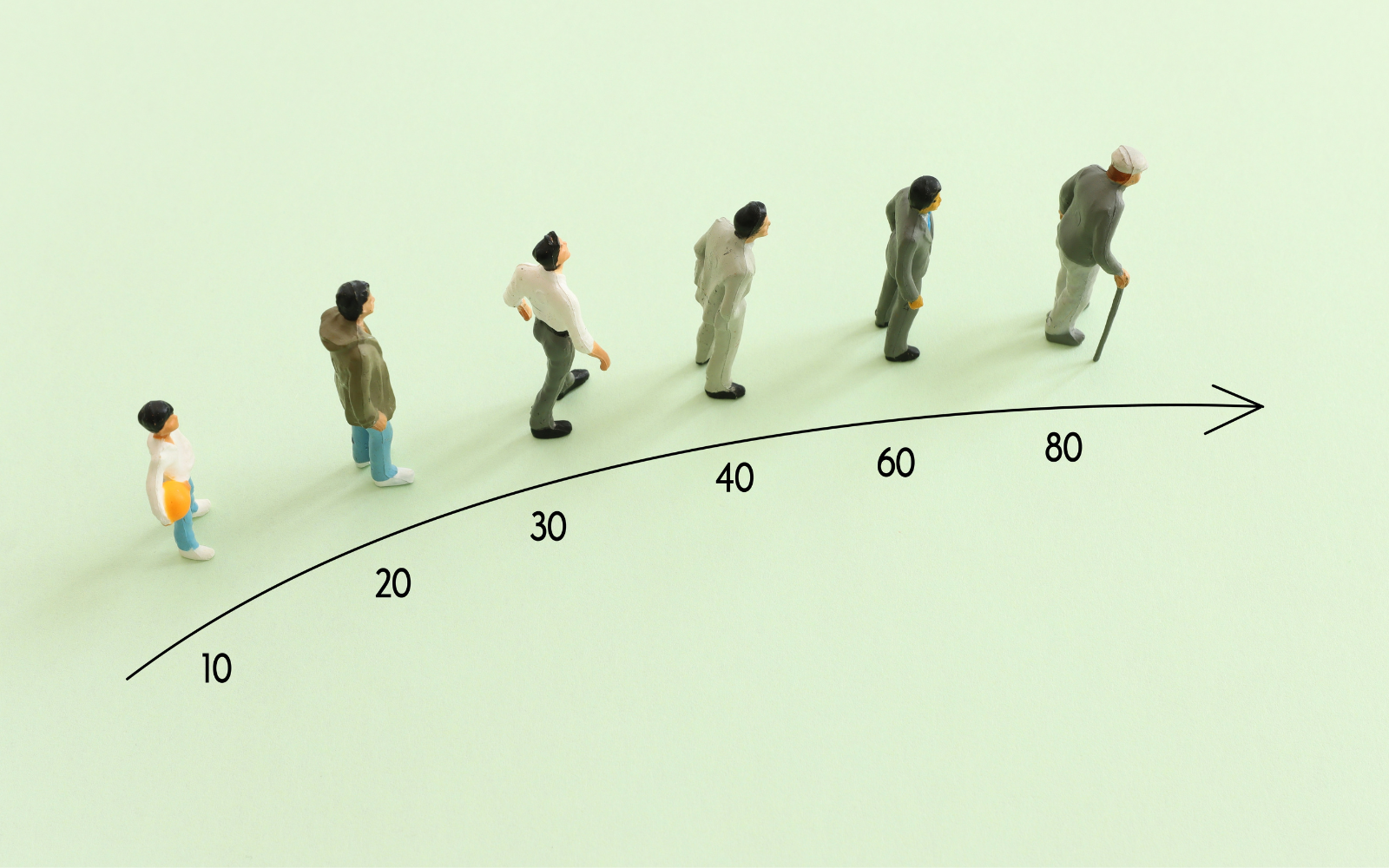Sadly, there’s no quick fix for the effects of aging or the extra pounds that sometimes (and so easily) sneak onto our waistlines. But, there is a simple behavior that can combat time (yes, really) and the effects of eating a little too much or exercising not quite enough.
Fasting & Calorie Restriction
Fasting - abstaining from or restricting food, drink, or both - has been known to have may benefits including weight loss. More importantly though, it improves health (read: waistline impact and beyond) and lifespan in most, if not all, living organisms.
Calorie restriction (CR) - of which fasting, temporary or intermittent, is a type - is the long term reduction of calorie intake (eating a bit less for a long while) without malnutrition.
Calorie Restriction Benefits for Longevity
As we age, the risk of many diseases increases; this is called an age-associated health effect. For example, the average fifty year old has a higher risk of heart disease than the average five year old. CR has been shown to reduce this risk and other age-associated health effects.
Many of the positive health benefits are realized because calorie restriction activates cellular processes not usually stimulated when food is readily available. One such process, autophagy - a recycling mechanism that “cleans up” the obsolete, damaged, or otherwise unneeded cell contents - via the cell’s very own Marie Kondos - plays a prominent role. Thank you, autophagic Maries!
So, how do you feel when you adopt calorie restriction as a long term health strategy? In one study, non-obese, healthy adults who reduced their calorie intake by 15 to 25% for two years reported improved quality of life – including improved general health, sexual drive, and mood and reduced tension. They also lost an average of 7.6 kilograms of mostly body fat [1]. Further findings from the trial also suggest improved resting metabolic rate and improved cognition [2].
Sound good? If you’re up for it, at least in the short term, visit our blog on the topic to discover a variety of intermittent fasting schedules and the known benefits.
Calorie Restriction Mimetics
Though the benefits are many and the process is simple, fasting is not without its difficulties (how do you eat 25% less pasta?), discomforts, and risks. And, some people simply can't fast without negative consequences: Included in this group are women in their reproductive years who risk losing their menstrual cycles, those with hypothyroidism, and older people with sarcopenia or low body weight for whom fasting would lead to frailty.
In his talk at the 2021 Future of Autophagy Symposium held by the Oxford Longevity Project, Professor Tamotsu Yoshimori from the University of Osaka, said the following, “Of course we know fasting induces autophagy, but…fasting also has not good effect[s] on [the] body. So, you should think about balance between [the] bad effect[s] of fasting and good effect[s]. I think…autophagy should be induced by another way (other than fasting), for example, some supplement or food …”
If autophagy is beneficial and what we want to induce, but not necessarily via fasting, fasting mimetics, or foods and supplements that mimic or induce similar effects, could be the answer. Although the science is relatively new and most of the evidence available pertains to animals, the initial findings on calorie restriction mimetics (CRM) are promising. Like fasting, some CRMs activate autophagy, prolong life- and healthspan, and ameliorate a diverse array of disease symptoms. Among them is, you guessed it, spermidine.
All Hail, Spermidine - a Natural Calorie Restriction Mimetic!
Spermidine is naturally produced by the body, but natural levels decrease as we age. Ingestion of spermidine contained in food or supplements can restore your levels to those of earlier days and is well-tolerated and processed by the body.
The known benefits of spermidine are many including increasing lifespan, suppressing tumor growth, enhancing your body’s immune response to cancer, and improving the heart’s ability to protect itself from disease; and these are only a few of its known effects. Central to its effectiveness is the induction of autophagy.
Spermidine is also known to induce mitophagy, a type of autophagy that eliminates damaged or dysfunctional mitochondria, the energy center of the cell, in studies of mice and human cells in culture. It’s perhaps no surprise that mitophagy is significantly impaired as we age and associated with many age-related diseases.
As the scientific world studies CRMs, and spermidine in particular, the good news keeps coming. Below, we offer a small sampling of recent studies of spermidine in animals and humans.
Two Recent CRM Studies in Animals:
In a study published in 2019, scientists assessed the potential of a combination of three CRMs to fight tumor growth in mice with lung cancer. They chose CRMs, including spermidine, that are known to induce autophagy and promote the body’s immune response to cancer. When compared to the control group, scientists found that the CRMs induced autophagy in the tumors and significantly reduced the number of metastases. The mice also tolerated the treatment well, which suggests that aerosolized CRM may be an option to explore for localized lung cancer treatment in humans [3].
In a study published in 2021, researchers explored the ability of spermidine to confer neuroprotective effects on the brains of aging-accelerated rats and naturally aged rats. After six weeks of oral spermidine supplements, the brain tissue of the rats were analyzed. They found that spermidine up-regulated the expression of several autophagy genes (increased autophagy) and down-regulated the expression of an inflammatory gene (decreased inflammation). The results provide first-line evidence that spermidine provides neuroprotection against the two aging-induced effects: oxidative stress and inflammation [4].
A Recent Spermidine Study in Humans:
In a study published in 2021, thirty healthy Japanese men ate one or two servings of ready-to-eat natto, a known dietary source of spermidine, every day for a year. When compared to a control group, that did not modify their diets, a marker that increases with inflammation, LFA-1, was reduced. This suggests that increased spermidine levels reduces inflammation.
CRM > CR
Though calorie restriction is undoubtably effective, it is also difficult and not without risk. Supplementing your diet with CRMs like spermidine can be similarly effective, definitely easier, and probably more satisfying. Spermidine can be found in many foods like the natto eaten in the above study; vegetables like green peas, corn, and pumpkin; and, perhaps easiest, can be taken as a supplement like our premium de-fatted wheatgerm supplement Primeadine®. So, grab a spermidine snack or spermidine supplements and reap the rewards!





Leave a comment
All comments are moderated before being published.
This site is protected by hCaptcha and the hCaptcha Privacy Policy and Terms of Service apply.